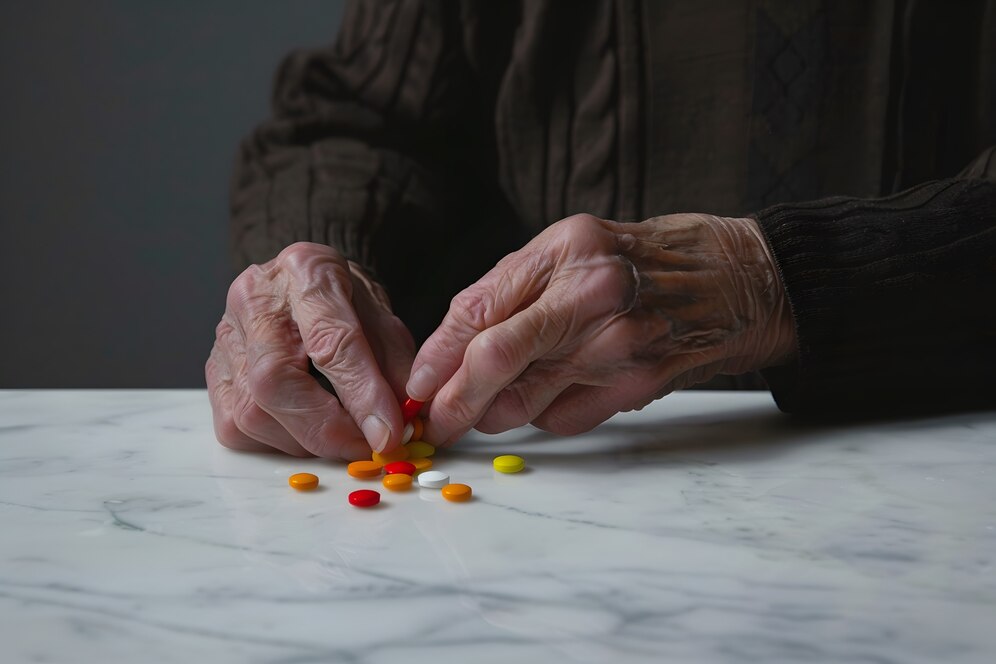CBD for Parkinson’s Disease Symptoms
Finding Potential Relief: Exploring CBD for Parkinson’s Disease Symptoms
Parkinson’s Disease (PD) is a progressive neurodegenerative disorder that affects movement, often leading to tremors, rigidity, slowness of movement (bradykinesia), and balance problems. Beyond these well-known motor symptoms, individuals with Parkinson’s can also experience a range of non-motor symptoms like sleep disturbances, anxiety, depression, and pain, significantly impacting their quality of life. As researchers and individuals living with PD explore complementary therapies, CBD for Parkinson has emerged as a topic of growing interest, offering potential relief for some of these challenging symptoms.
This comprehensive guide delves into the current understanding of CBD for Parkinson, examining how it might interact with the body to potentially ease certain motor and non-motor symptoms, the different ways it’s being used, and crucial considerations for anyone exploring this option. If you’re seeking information about CBD for Parkinson and its potential role in managing symptoms, you’ve come to the right place.
Understanding Parkinson’s Disease: More Than Just Tremors
Parkinson’s Disease primarily affects dopamine-producing neurons in a specific area of the brain called the substantia nigra. The loss of these neurons leads to1 a decrease in dopamine, a neurotransmitter crucial for controlling movement, motivation, and reward. While the hallmark motor symptoms are often the most visible, Parkinson’s is a complex condition with a wide array of potential symptoms:
Motor Symptoms:
- Tremor: Involuntary shaking, often starting in one hand or finger.
- Rigidity: Stiffness of the limbs and trunk, which can limit range of motion and cause pain.
- Bradykinesia: Slowness of movement, making everyday tasks difficult.
- Postural Instability: Impaired balance and coordination, increasing the risk of falls.
Non-Motor Symptoms:
- Sleep Disturbances: Insomnia, restless legs syndrome, and REM sleep behavior disorder.
- Anxiety and Depression: Common mental health challenges for individuals with PD.
- Pain: Musculoskeletal pain, nerve pain, and other types of discomfort.
- Fatigue: Persistent tiredness not relieved by rest.
- Cognitive Changes: Memory problems and difficulties with executive functions.
- Speech and Swallowing Difficulties: Dysarthria and dysphagia.
Managing this diverse range of symptoms is a key focus for individuals living with Parkinson’s and their healthcare teams, leading to the exploration of potential complementary therapies like CBD for Parkinson.
What is CBD and How Might It Interact with Parkinson’s Symptoms?

Cannabidiol (CBD) is a naturally occurring compound found in the cannabis sativa plant, particularly in hemp. Unlike THC (tetrahydrocannabinol), CBD is non-psychoactive, meaning it won’t produce the “high” associated with marijuana.
Research suggests that CBD for Parkinson may offer potential benefits by interacting with the body’s endocannabinoid system (ECS). The ECS plays a crucial role in regulating various physiological processes, including2 pain perception, inflammation,3 mood, sleep, and motor control – all areas affected by Parkinson’s Disease.
While the exact mechanisms are still being investigated, potential ways CBD for Parkinson might help include:
- Neuroprotection: Some preclinical studies suggest CBD may have neuroprotective properties, potentially helping to protect dopamine-producing neurons, although more research is needed in humans with PD.
- Anti-Inflammatory Effects: Inflammation is thought to play a role in neurodegenerative diseases like Parkinson’s. CBD’s known anti-inflammatory properties might help to reduce inflammation in the brain.
- Interaction with Serotonin Receptors: CBD can interact with serotonin receptors, which are involved in mood regulation, anxiety, and sleep – all common non-motor symptoms of Parkinson’s.
- Pain Relief: CBD has shown promise in managing various types of pain, which can be a significant issue for individuals with Parkinson’s.
Exploring CBD for Specific Parkinson’s Symptoms
While research is ongoing, some studies and anecdotal reports suggest CBD for Parkinson might offer relief for specific symptoms:
- Tremors and Rigidity: Some individuals with Parkinson’s have reported a reduction in tremors and muscle stiffness with CBD use, although scientific evidence in this area is still limited and often mixed.
- Bradykinesia (Slowness of Movement): Research on the impact of CBD on bradykinesia is still very preliminary, and more studies are needed to determine if it offers any significant benefit.
- Sleep Problems: CBD’s potential to reduce anxiety and promote relaxation might help improve sleep quality for individuals with Parkinson’s who experience insomnia or other sleep disturbances.
- Anxiety and Depression: Given CBD’s potential interaction with serotonin receptors, it may offer some relief for anxiety and depression, which are common non-motor symptoms in Parkinson’s.
- Pain: CBD has shown promise in managing chronic pain, including neuropathic pain and musculoskeletal pain, which can be experienced by individuals with Parkinson’s.
- Non-Motor Symptoms: Beyond anxiety and sleep, some individuals report improvements in other non-motor symptoms like fatigue and cognitive function with CBD for Parkinson, but further research is necessary.
Different Ways to Use CBD for Parkinson’s
If you’re considering CBD for Parkinson, it’s available in various forms:
- CBD Oils and Tinctures: These are taken sublingually (under the tongue) for relatively fast absorption and allow for easy dose adjustment.
- CBD Capsules and Softgels: These offer a convenient and discreet way to consume a pre-measured dose of CBD.
- CBD Edibles (Gummies, etc.): These offer a palatable option, but the effects may take longer to appear due to digestion.
Dosage and Timing: A Personalized Approach is Key
Determining the appropriate dosage of CBD for Parkinson is highly individual, and there are currently no standardized guidelines. It’s crucial to:
- Start with a Very Low Dose: Begin with a low dose and gradually increase it while closely monitoring your symptoms and any potential side effects.
- Consult with Your Neurologist: This is the most important step. Discuss your interest in CBD for Parkinson with your neurologist or a healthcare professional experienced in treating Parkinson’s and using CBD. They can provide personalized guidance, consider your specific symptoms and medications, and help you monitor for any potential interactions.
- Keep a Symptom Journal: Tracking your symptoms and CBD dosage can help you identify what works best for you.
Choosing Quality CBD Products for Parkinson’s
Selecting high-quality CBD products is essential for safety and potential effectiveness when considering CBD for Parkinson. Look for the following:
- Third-Party Lab Testing: Ensure the product has been tested by an independent laboratory to verify the CBD content and ensure it’s free from harmful contaminants like heavy metals, pesticides, and molds. Look for a Certificate of Analysis (COA).
- THC Content: Opt for products with low to no THC content (below 0.3%) to avoid any psychoactive effects, as THC may not be well-tolerated by some individuals with Parkinson’s.
- Ingredients: Check the ingredient list for any unnecessary additives or potential allergens.
- Reputable Brands: Choose products from well-established and trusted brands with positive reviews and a commitment to transparency.
Research and Evidence: What Does the Science Say About CBD for Parkinson?
Research specifically investigating the effects of CBD for Parkinson is still in the early stages, but it is a growing area of interest. Some small-scale clinical trials and preclinical studies have shown promising results for certain symptoms, such as sleep disturbances and anxiety. However, larger, well-controlled studies are needed to definitively determine the efficacy and long-term safety of CBD for Parkinson for various symptoms.
Important Considerations and Disclaimer
CBD is not a cure for Parkinson’s Disease. It is being explored as a potential complementary therapy to help manage certain symptoms. It is crucial to continue with your prescribed Parkinson’s medications and follow the treatment plan recommended by your neurologist.
Never stop taking your prescribed Parkinson’s medications without consulting your doctor. CBD for Parkinson should be discussed with your neurologist to ensure it is safe and appropriate for your individual situation and won’t interact with your current medications.
Conclusion: Navigating the Potential of CBD for Parkinson’s Symptom Management
While the research on CBD for Parkinson is still evolving, it holds promise as a potential complementary approach for managing certain motor and non-motor symptoms associated with the disease. If you are considering CBD for Parkinson, the most crucial step is to have an open and honest conversation with your neurologist. They can provide personalized guidance, help you navigate the available information, and ensure that any use of CBD is safe and integrated into your overall Parkinson’s management plan. Remember that CBD for Parkinson should be viewed as a potential tool to help manage specific symptoms and improve quality of life, always in conjunction with professional medical advice and treatment.
Frequently Asked Questions (FAQs) about CBD for Parkinson’s Disease Symptoms:

1. Can CBD cure Parkinson’s Disease?
No, CBD for Parkinson is not a cure for Parkinson’s Disease. Parkinson’s is a progressive neurodegenerative disorder that currently has no known cure. Research is exploring CBD’s potential to help manage certain symptoms associated with the condition.
2. What Parkinson’s symptoms might CBD help with?
Preliminary research and anecdotal evidence suggest that CBD for Parkinson may potentially help with non-motor symptoms like sleep disturbances, anxiety, and pain. Some individuals have also reported potential benefits for motor symptoms like tremors and rigidity, but more research is needed in these areas.
3. Is CBD safe for people with Parkinson’s Disease?
While generally considered safe, it’s crucial for individuals with Parkinson’s Disease to discuss CBD for Parkinson with their neurologist before use. CBD can potentially interact with certain medications commonly prescribed for Parkinson’s, and a neurologist can assess the risks and benefits for your specific situation.
4. What is the best way to take CBD for Parkinson’s symptoms?
There is no one “best” way to take CBD for Parkinson as it can depend on individual preferences and the specific symptoms being targeted. CBD oils and tinctures allow for precise dosing and relatively fast absorption, while capsules and edibles offer convenience. It’s best to discuss different delivery methods with your neurologist to determine what might be most suitable for you.







